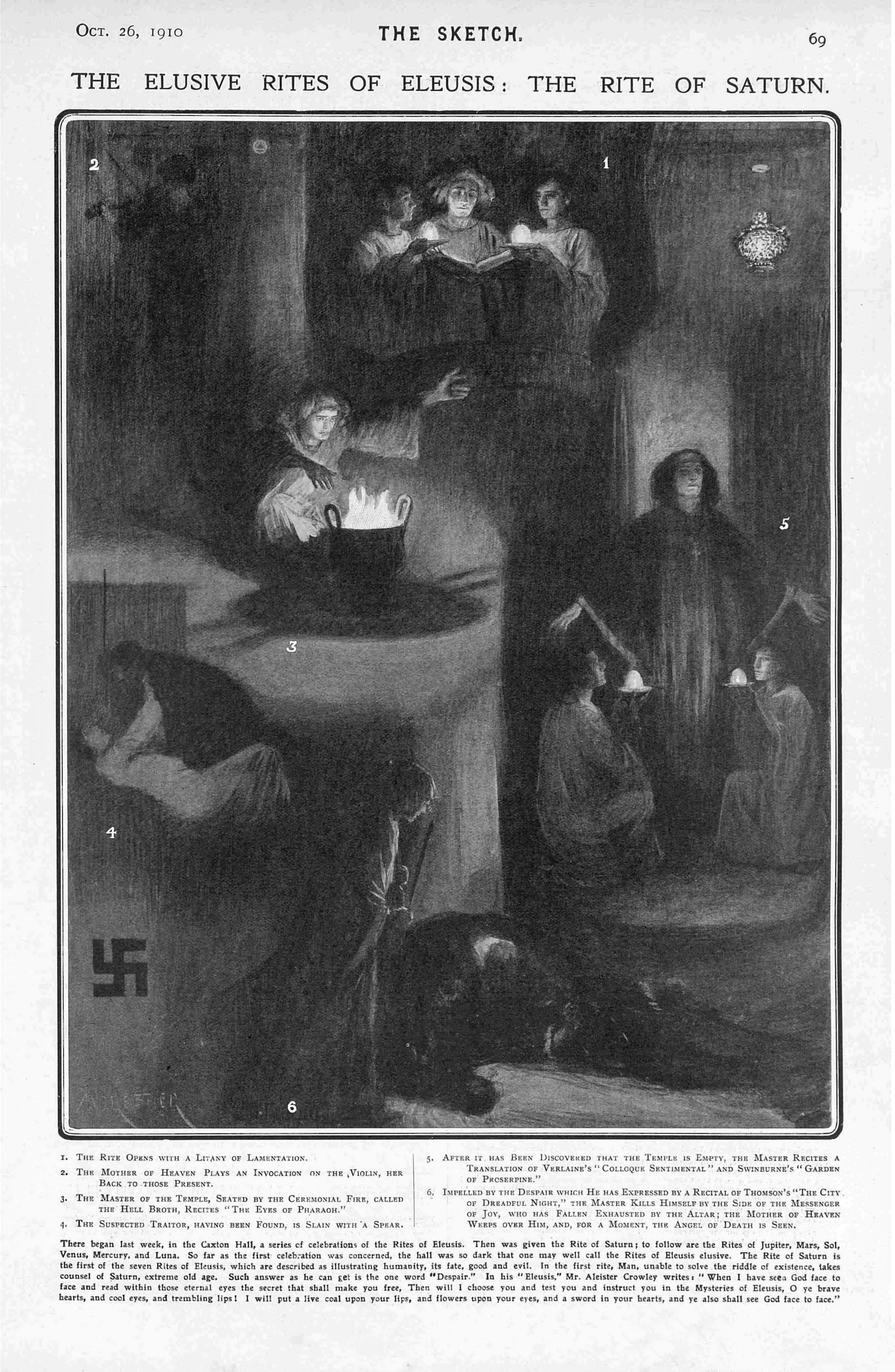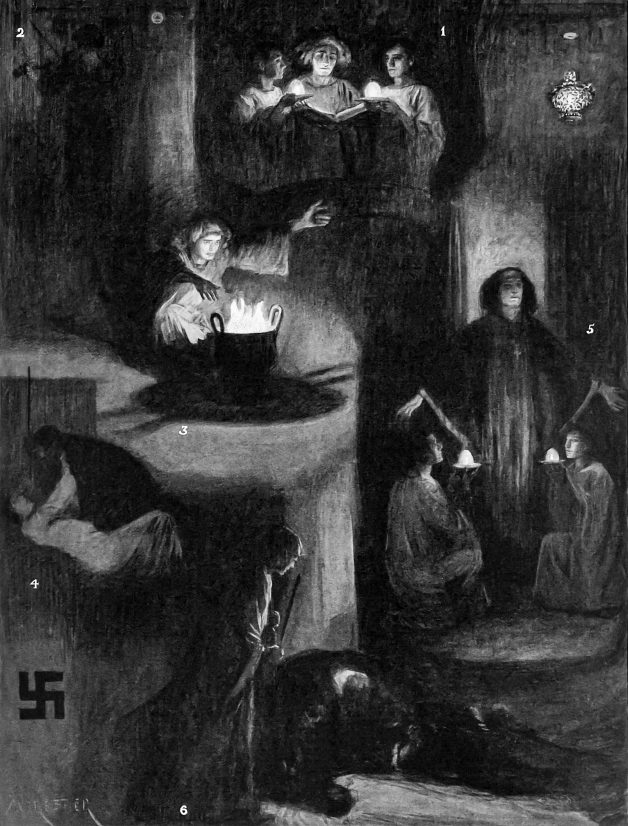Do what thou wilt shall be the whole of the Law
“The Elusive Rites of Eleusis”
This article was published in the 1910, October 26th edition of The Sketch. The author recants his experience of the Rite of Saturn, lamenting that it was so dark at the performance that the Rite was barely visible at all and hence the “Elusive Rites of Eleusis”. Nonetheless it also provided a firsthand account of this Rite and the article was accompanied by beautifully executed artistic representation of the event. Crowley, who played the role of the Master of the Temple appears in three of the scenes depicted in this montage and Waddell who played the Mother of Heaven would appear in two.
The article reads…
There began last week, in the Caxton Hall, a series of celebrations of the Rites of Eleusis. Then was given the Rite of Saturn; to follow are the Rites or Jupiter, Mars, Sol, Venus, Mercury, and Luna. So far as the first celebration was concerned, the hall was so dark that one may well call the Rites of Eleusis elusive. The. Rite of Saturn is the first of the seven Rites of Eleusis, which are described as illustrating humanity, its fate, good and evil. In the first rite, Man, unable to solve the riddle of existence, takes counsel of Saturn, extreme old age. Such answer as he can get is the one word “Despair.” In his “Eleusis,” Mr. Aleister Crowley writes: “When I have seen God face to face and read within those eternal eyes the secret that shall make you free. Then will I choose you and test you and instruct you in the Mysteries of Eleusis, O ye brave hearts, and cool eves, and trembling lips! I will put a live coal upon your lips, and flowers upon your eyes, and a sword in your hearts, and ye also shall see God face to face.”
(The following descriptions were provided regarding this painting)
- The Rite Opens with a Litany of Lamentation.
- The Mother of Heaven plays an Invocation on the violin, her back turned to those present.
- The Master of the Temple, seated by the ceremonial fore, called the hell broth, recites “The Eyes of the Pharaoh.”
- The Suspected Traitor, having been found, is slain with a spear.
- After it has been discovered that the Temple is Empty, the Master recites a translation of Verlaine’s “Colloque Sentimental” and Swinburne’s “Garden of Proserpine”.
- Impelled by the despair which he has expressed by a Recital of Thomson’s “The City of Dreadful Night,” The Master kills Himself by the side of the Messenger of Joy, who has fallen exhausted by the Altar; the Mother of Heaven weeps over him, and for a moment, the Angel of Death is seen.
Love is the law, love under will
Orpheus


